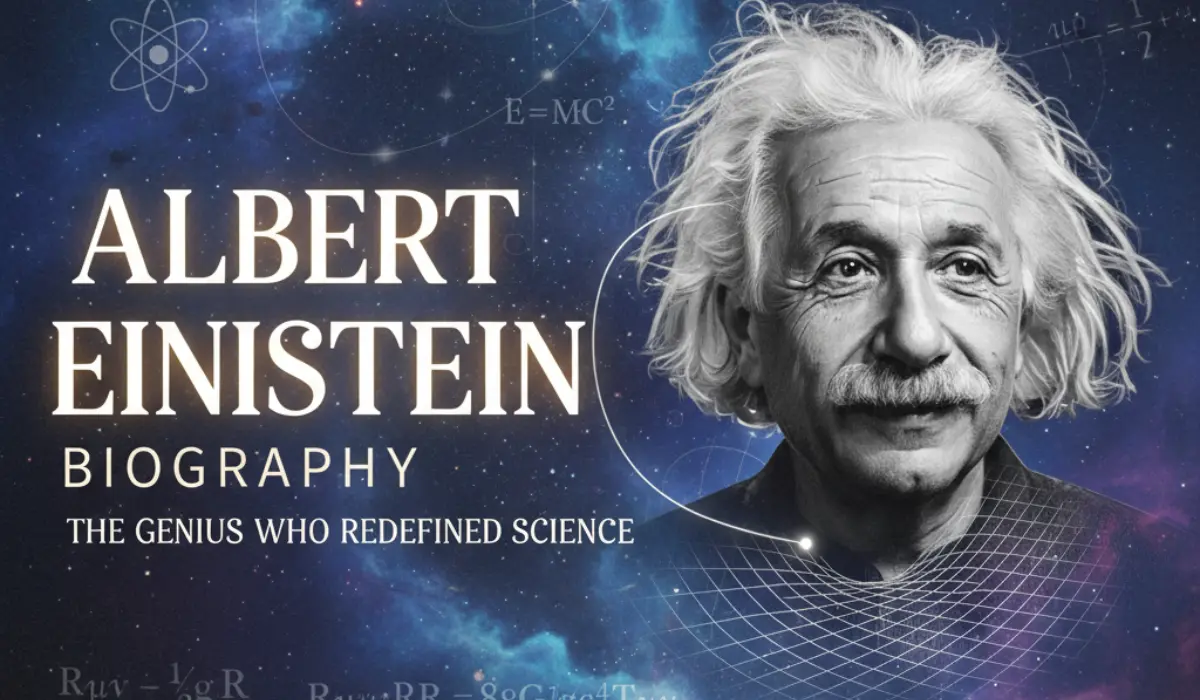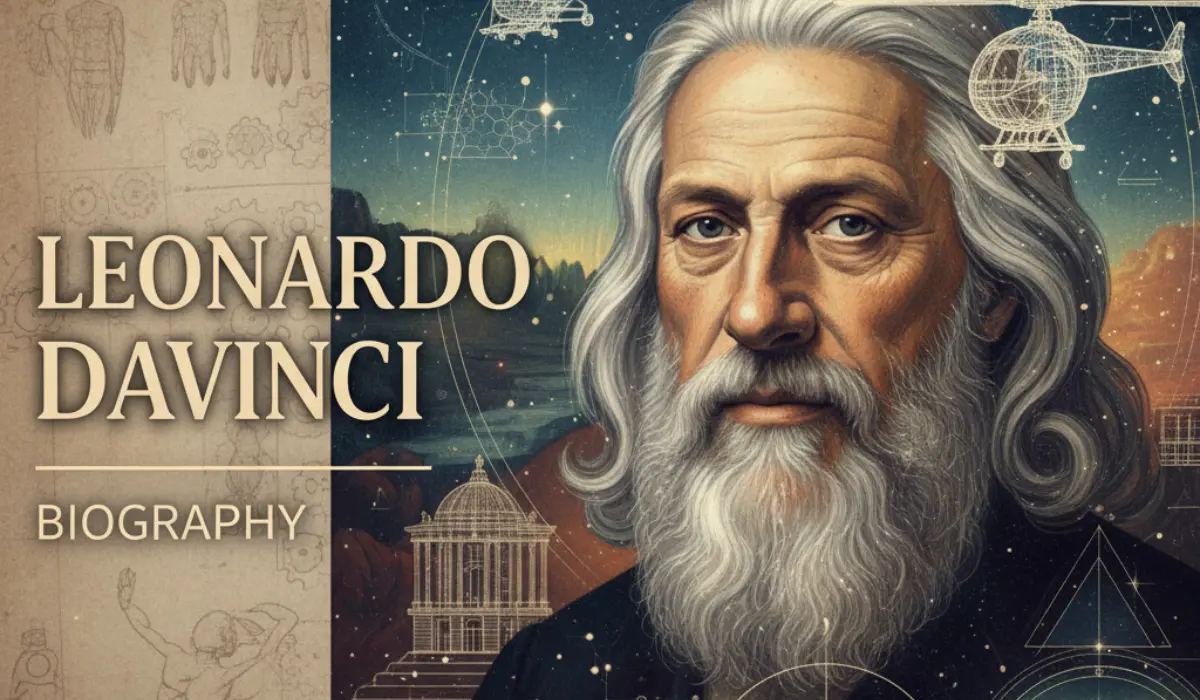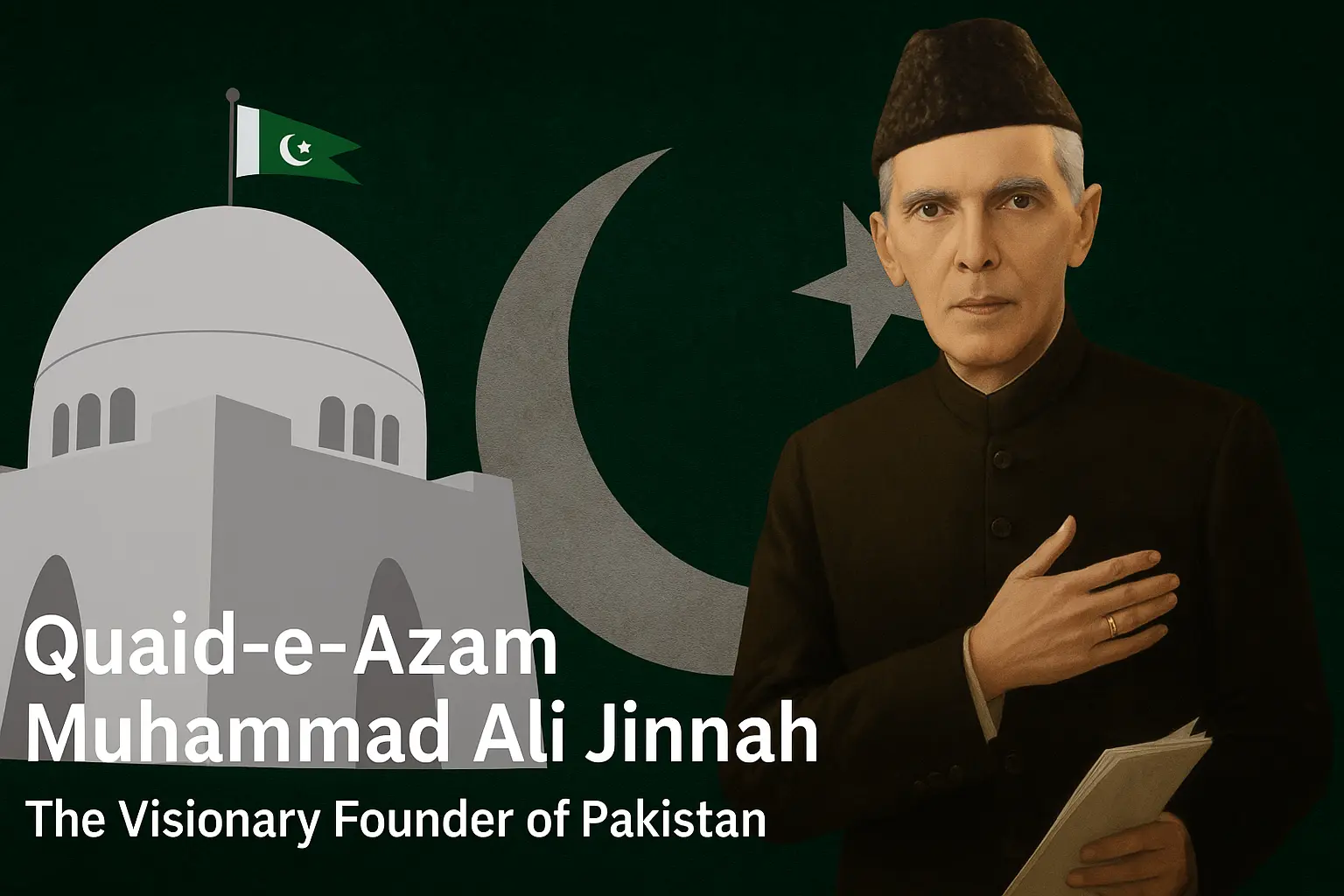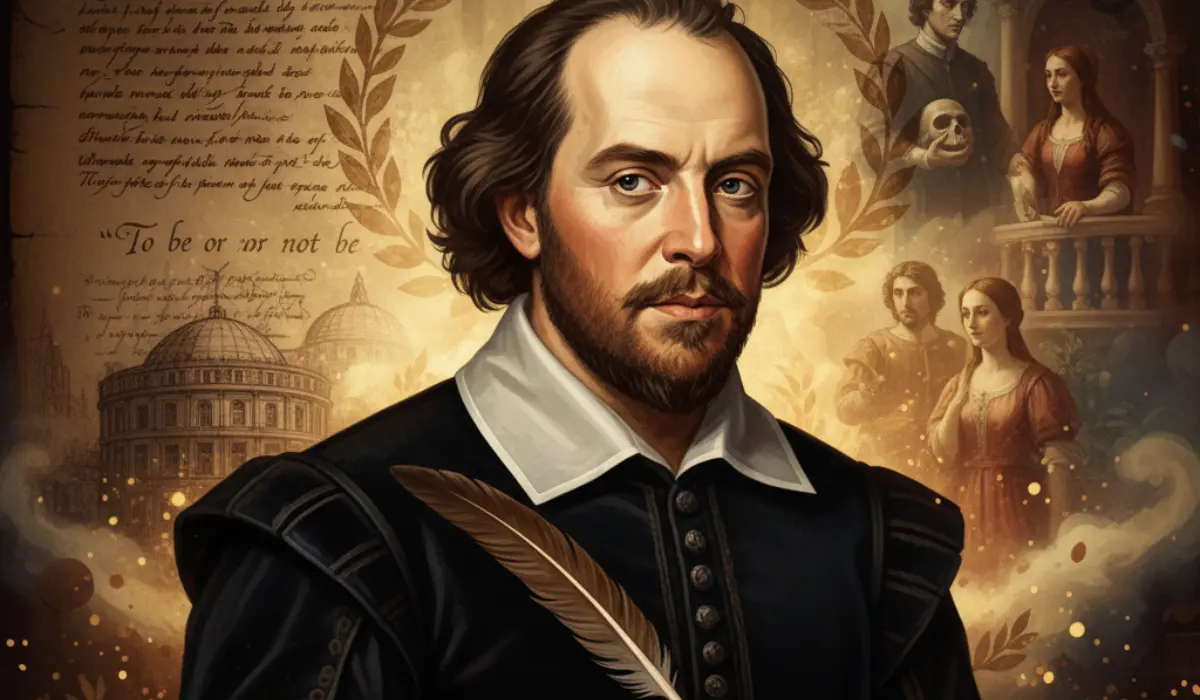
Some names don’t slip away with time. Albert Einstein is one of those few.
You’ve probably seen that wild mess of hair and that twinkle in his eyes — a face that feels both serious and amused at the same time. It’s funny how you can look at a photo of him and almost hear him thinking.
But the real Einstein wasn’t the cartoon genius we imagine. He was a quiet, curious boy who kept asking the kind of questions adults get tired of answering. Why does a compass needle know where north is? Why does light always move at the same speed? Those tiny questions turned into thoughts that eventually changed how we understand the universe.
He didn’t chase fame or riches. He chased wonder — that small spark that makes ordinary things feel magical. His story is less about numbers and more about the strange beauty of curiosity.
Early Life and the Seeds of Curiosity
Einstein was born on March 14, 1879, in Ulm, Germany. His family wasn’t rich, but they valued ideas. His father worked with electricity — still a new and exciting thing back then — and his mother played the piano beautifully.
That love for music sank deep into young Albert. When words failed him, melodies didn’t.
He spoke late as a child, which worried his parents. But it wasn’t a sign of slowness — he just thought carefully before he spoke. That habit stayed with him for life.
At school, he disliked memorizing facts. He wanted to understand why things worked. His teachers found him stubborn. One even told him he’d never succeed — which might be the most incorrect prediction in history.
The Patent Clerk Who Changed Everything
After college in Zurich, Einstein couldn’t land a teaching job. So he worked at a patent office in Bern. It wasn’t glamorous, but it paid the bills.
Every day, he reviewed inventions — clocks, engines, electric gadgets. But while his hands were busy stamping papers, his mind wandered through the universe.
And then came 1905, his “miracle year.” In just twelve months, he wrote four papers that shook science to its core.
One explained how light can act as both wave and particle — an idea that led to the Nobel Prize years later. Another paper described how time and space could bend, twist, and depend on how fast you’re moving — the Theory of Special Relativity.
And then there was E=mc². Such a small equation for such a big truth: energy and mass are just different faces of the same thing.
Most people didn’t understand it at first. But in time, it became one of the most famous ideas ever written — a bridge between what we see and what we can only imagine.
Relativity, in Simple Words
Relativity sounds complicated, but the picture is simple.
Imagine the universe as a big sheet of fabric. When you put something heavy — say, a planet — on that fabric, it bends. If something smaller passes nearby, it follows that curve. That’s what we feel as gravity.
In 1919, during a solar eclipse, astronomers proved that even light bends around the sun. That one photograph made Einstein a household name overnight. Newspapers called him a genius.
But fame didn’t change him. When asked how it felt to be the most famous scientist alive, he shrugged and said, “I didn’t do it for that.”
The Man Behind the Mind
Einstein’s genius wasn’t cold or mechanical. He was emotional, funny, and sometimes scatterbrained.
He loved his violin — he called it “Lina.” He’d play for hours, saying music helped him think. “If I were not a physicist,” he once said, “I would probably be a musician.”
He didn’t care about fashion or wealth. His clothes were wrinkled, his socks often missing. But none of that mattered. He cared about people — and truth.
He spoke loudly against war and racism. When he escaped Nazi Germany and moved to the United States in the 1930s, he became not just a scientist, but a voice for peace.
How Einstein Saw Life
Einstein once said, “Imagination is more important than knowledge.” That wasn’t arrogance — it was honesty.
He believed facts are just starting points. Imagination gives them meaning. He didn’t see science as a pile of equations but as a way of touching the unknown.
Though not religious in a strict sense, he often spoke about “the mystery.” “The most beautiful thing we can experience,” he said, “is the mysterious.”
For him, science and spirituality weren’t enemies. They were two ways of reaching the same truth — one through reason, the other through wonder.
Recognition and the Later Years
In 1921, Einstein received the Nobel Prize in Physics for his work on the photoelectric effect — a discovery that quietly opened the door to modern electronics.
Fame followed him everywhere, but he remained down-to-earth. He refused luxury, lived modestly in Princeton, and continued to teach and write.
In 1952, he was offered the presidency of Israel. He said no — not out of disrespect, but because he didn’t see himself as a leader. “Politics requires a different kind of mind,” he joked.
Even on his last day, in 1955, Einstein was still writing equations. The doctors told him to rest. He refused. “I want to go when I want,” he said calmly. “It is tasteless to prolong life artificially.” He passed away that night, pen in hand.
Legacy — The Eternal Questioner
Einstein’s fingerprints are on nearly everything — from GPS satellites to nuclear energy, from quantum physics to philosophy.
But beyond all the discoveries, his real legacy is curiosity. He showed the world that asking “why” can change everything.
He taught us that the universe isn’t cold and mechanical — it’s alive with mystery.
Even now, decades later, when a child stares up at the night sky and wonders what’s out there, a little piece of Einstein’s spirit is alive in that question.
Closing Thought
Einstein’s life reminds us that thinking differently isn’t rebellion — it’s how progress happens.
He didn’t set out to become a genius. He just never stopped being curious. And maybe that’s the real equation for greatness:
Wonder + Patience + Courage = Change.


